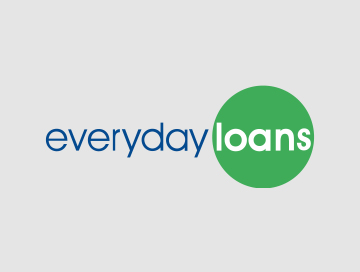Mortgage interest rates have a major impact on the cost of buying a home through long-term financing.
The rate of interest charged on mortgages fluctuates because lenders are guided by the Bank of England (BoE) base rate.
The Monetary Policy Committee of the BoE sets the benchmark interest rate eight times a year. In times of high inflation, the central bank tends to increase the bank rate in a bid to curb spending and encourage saving.
The idea behind this is that less demand for goods and services helps control rising prices. Savers get a better return on their investment, but higher interest rates can also increase monthly mortgage repayments.
On 3rd August 2023, the BoE increased the base intertest rate from 5 percent to 5.25 percent.
Observers predict further interest rate increases in 2023/2024, before gradually falling over the next five years.
Types of Mortgages
Besides rising interest rates, how much your mortgage is costing you also depends on the type of mortgage you have.
Many types of mortgages are available. They all work in a similar way. You borrow money from a mortgage lender – a bank or building society – to help you buy a property.
However, factors such as interest rates, repayment terms and lender fees can differ across the board.
The most common mortgage schemes are fixed-rate mortgages and variable-rate mortgages. Both schemes can be either on an interest-only or repayment basis.
With an interest-only mortgage, you pay interest on the loan every month but don’t repay any of the capital you’ve borrowed, which becomes payable at the end of the loan period.
With a repayment mortgage, your monthly payments include both interest and some of money you’ve borrowed (capital).
Fixed-Rate Mortgages
If your mortgage is on a fixed rate, your interest rate is set for a specific amount of time (generally 2, 3, 5, or even 10 years).
This means you know exactly how much you need to budget for each month to keep up with your mortgage payments.
The Bank of England (BoE) bank rate increases won’t affect the fixed rate, but at the same time your rate won’t go down if bank interest rates decrease.
At the end of the fixed rate you’ll be switched to a variable rate set by your mortgage provider, which is usually higher than the fixed rates available.
When you have a fixed-rate deal that’s coming to an end or you want to review your mortgage, contact your mortgage provider, and explore your options.
Variable-Rate Mortgages
Interest on variable-rate mortgages can go up or down at any time, in line with BoE base rate fluctuations or when your mortgage provider decides to increase their rates.
According to the Office for National Statistics (ONS), more than 1.4 million households in the UK are facing the prospect of interest rate rises when they renew their fixed rate mortgages in 2023.
There are different types of variable-rate mortgages. These include:
Standard Variable-Rate Mortgage
With a standard variable rate mortgage (SVR), the lender can increase or lower the interest rate, in line with the bank rate.
Because your payments are subject to change, budgeting can be more difficult.
Tracker Mortgage
Interest for a tracker mortgage consists of the base interest rate plus percentage points set by the lender.
If the bank rate goes down, your mortgage rate will track down, and vice versa.
Discount Mortgage
If you have a discount mortgage, you’ll be given a discount on your lender’s SVR for a fixed period of time. Once that period ends, the mortgage reverts to SVR.
Capped-Rate Mortgage
A capped-rate mortgage is a variable rate mortgage that doesn’t increase above or fall below a certain rate. They follow the models of standard variable rate mortgages or tracker mortgages but with a cap built in.
What Else Affects Mortgage Payments?
In addition to the Bank of England base rate and the type of mortgage you have, other considerations that impact monthly mortgage payments include:
Supply and Demand
The housing market has been tumultuous over the past few years.
According to the latest data from the UK House Price Index, average house prices fell by 1.2 percent in March 2023. This followed a one percent drop the previous month.
Whether you’re a first-time buyer or are looking to move home, lower house prices mean you don’t have to borrow as much from your mortgage lender. This in turn means lower monthly payments.
However, if house prices have fallen since you bought your home, you may owe more money on your mortgage than your house is currently worth.
And if more people want to buy a home when prices are lower, this leads to increased demand for mortgages, which can push interest rates up.
Size and Term of Your Loan
How much you borrowed and for how long is another factor in determining your monthly mortgage repayments. Longer loan terms generally mean lower monthly payments, but you also pay more interest during the lifetime of your mortgage.
Mortgage Calculators
When you’re looking to arrange a mortgage, it’s crucial to review your finances so you can be confident about how much you can afford to borrow.
This is why many people use a mortgage calculator.
Once you know how much you can possibly borrow for your new home, a mortgage calculator will give you an idea of how much your monthly payments are likely to be.




